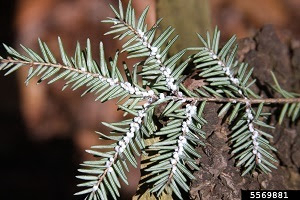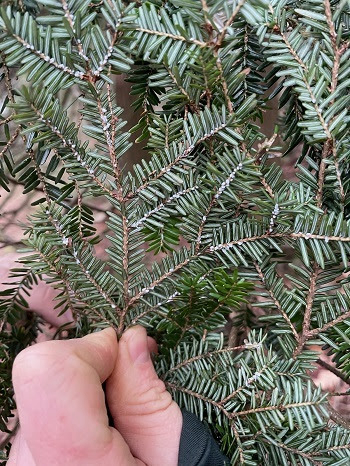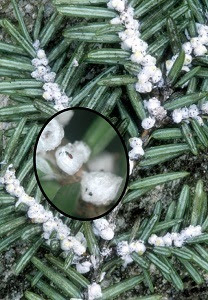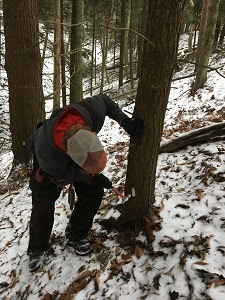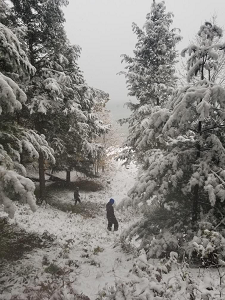Partnership gives wintering U.P. deer new outlook

The Department of Natural Resources and Plum Creek Timber Company are working together to manage more than 16,500 acres of industrial forest land for winter deer habitat. This unique partnership is focused on improving and maintaining conifer cover, which is essential to winter deer survival in the Upper Peninsula.
“This long-term project shows a serious investment by Plum Creek on how the land will be managed for wildlife and forest products into the future,” said DNR wildlife biologist John DePue. “Hemlock is a species that can live over 300 years, is a preferred winter food for deer, but is difficult to establish. Working together, our goal is to retain at least a 70-percent conifer canopy, because research has shown anything less reduces overwinter survival of deer.”
The Lake Superior watershed receives so much annual snowfall that deer will migrate from their summer range to traditional wintering areas to survive the winter, with average movement of about 18 miles. Hemlock and other conifer canopies catch the snow and reduce the amount of snow on the ground, which makes it easier for deer to move, conserving their energy. The dense trees also reduce the wind, which helps deer retain body heat.
This project will focus on two critical deer wintering complexes (DWC) in the western U.P. – the Menge Creek DWC in Baraga County, at the head of Keweenaw Bay, and the Huron Mountains DWC, spanning northeastern Baraga and northwestern Marquette counties, along the Lake Superior shoreline.
Foresters and biologists with Plum Creek and DNR wildlife biologists have worked cooperatively to develop the guidelines to retain and enhance hemlock and other conifer species, while promoting forest regeneration and production of forest products.
“We’re maintaining and creating habitat today that will benefit tomorrow’s deer,” said Plum Creek resource supervisor Jeff Joseph. “It’s the right thing to do.”
Plum Creek foresters have already applied the new project guidelines to more than 900 acres, demonstrating how effectively harvested forests and critical wildlife habitat conservation and enhancement can happen together.
To learn more about deer wintering complexes, visit www.michigan.gov/deer. To see an example of this partnership in action, see a video from 906 Outdoors at http://youtu.be/StqhZuO0g6g.
Plum Creek is among the largest and most geographically diverse private landowner in the nation, with more than 6 million acres of timberlands in 19 states and wood products mills in the Northwest. In Michigan’s U.P., Plum Creek owns and sustainably manages more than 571,000 acres across 13 counties and has offices in Escanaba and L’Anse. Forests are managed using sustainable practices to benefit Plum Creek’s many stakeholders, and employees work to create shareholder value, serve as stewards of the environment, make wood products for everyday use and build strong communities. Visit www.plumcreek.com for the latest information about Plum Creek.



